#leisure class
Text
https://www.wsj.com/us-news/education/luxury-beliefs-that-only-the-privileged-can-afford-7f6b8a16
‘Luxury Beliefs’ That Only the Privileged Can Afford

By: Rob Henderson
Published: Feb 9, 2024
In the same way that you don’t notice the specifics of your own culture until you travel elsewhere, you don’t really notice your social class until you enter another one. As an undergraduate at Yale a decade ago, I came to see that my peers had experienced a totally different social reality than me. I had grown up poor, a biracial product of family dysfunction, foster care and military service. Suddenly ensconced in affluence at an elite university—more Yale students come from families in the top 1% of income than from the bottom 60%—I found myself thinking a lot about class divides and social hierarchies.
I’d thought that by entering a place like Yale, we were being given a privilege as well as a duty to improve the lives of those less fortunate than ourselves. Instead, I often found among my fellow students what I call “luxury beliefs”—ideas and opinions that confer status on the upper class but often inflict real costs on the lower classes. For example, a classmate told me “monogamy is kind of outdated” and not good for society. I asked her what her background was and if she planned to marry. She said she came from an affluent, stable, two-parent home—just like most of our classmates. She added that, yes, she personally planned to have a monogamous marriage, but quickly insisted that traditional families are old-fashioned and that society should “evolve” beyond them.
My classmate’s promotion of one ideal (“monogamy is outdated”) while living by another (“I plan to get married”) was echoed by other students in different ways. Some would, for instance, tell me about the admiration they had for the military, or how trade schools were just as respectable as college, or how college was not necessary to be successful. But when I asked them if they would encourage their own children to enlist or become a plumber or an electrician rather than apply to college, they would demur or change the subject.
In the past, people displayed their membership in the upper class with their material accouterments. As the economist and sociologist Thorstein Veblen famously observed in his 1899 book “The Theory of the Leisure Class,” status symbols must be difficult to obtain and costly to purchase. In Veblen’s day, people exhibited their status with delicate and restrictive clothing, such as top hats and evening gowns, or by partaking in time-consuming activities, such as golf or beagling. The value of these goods and activities, argued Veblen, was in the very fact that they were so pricey and wasteful that only the wealthy could afford them.
Today, when luxury goods are more accessible to ordinary people than ever before, the elite need other ways to broadcast their social position. This helps explain why so many are now decoupling class from material goods and attaching it to beliefs.
Take vocabulary. Your typical working-class American could not tell you what “heteronormative” or “cisgender” means. When someone uses the phrase “cultural appropriation,” what they are really saying is, “I was educated at a top college.” Only the affluent can afford to learn strange vocabulary. Ordinary people have real problems to worry about.
When my classmates at Yale talked about abolishing the police or decriminalizing drugs, they seemed unaware of the attending costs because they were largely insulated from them. Reflecting on my own experiences with alcohol, if drugs had been legal and easily accessible when I was 15, you wouldn’t be reading this. My birth mother succumbed to drug addiction soon after I was born. I haven’t seen her since I was a child. All my foster siblings’ parents were addicts or had a mental health condition, often triggered by drug use.
A well-heeled student at an elite university can experiment with cocaine and will probably be just fine. A kid from a dysfunctional home with absentee parents is more likely to ride that first hit of meth to self-destruction. This may explain why a 2019 survey conducted by the Cato Institute found that more than 60% of Americans with at least a bachelor’s degree were in favor of legalizing drugs, while less than half of Americans without a college degree thought it was a good idea. Drugs may be a recreational pastime for the rich, but for the poor they are often a gateway to further pain.
Similarly, a 2020 Yahoo News/YouGov survey found that the richest Americans showed the strongest support for defunding the police, while the poorest Americans reported the lowest support. Consider that compared with Americans who earn more than $50,000 a year, the poorest Americans are three times more likely to be victims of robbery, aggravated assault and sexual assault, according to federal statistics. Yet it’s affluent people who are calling to abolish law enforcement. Perhaps the luxury belief class is simply ignorant of the realities of crime.
Most personal to me is the luxury belief that family is unimportant or that children are equally likely to thrive in all family structures. In 1960, the percentage of American children living with both biological parents was identical for affluent and working-class families—95%. By 2005, 85% of affluent families were still intact, but for working-class families the figure had plummeted to 30%. As the Harvard political scientist Robert Putnam stated at a 2017 Senate hearing: “Rich kids and poor kids now grow up in separate Americas.”
In 2006, more than half of American adults without a college degree believed it was “very important” that couples with children should be married, according to Gallup. Fast-forward to 2020, and this number had plummeted to 31%. Among college graduates polled by Gallup, only 25% thought couples should be married before having kids. Their actions, though, contradict their luxury beliefs: Most American college graduates who have children are married. Despite their behavior, affluent people are the most likely to say marriage is unimportant. Their message has spread.
I noticed that many Yale students selectively concealed their opinions or facts about their lives. More than one quietly confessed to me that they were pretending to be poorer than they really were, because they didn’t want the stigma of being thought rich. Why would this stigma exist at a rich university full of rich students? It’s a class thing. For the upper class, indicating your social position by speaking about money is vulgar. Sharing your educational credentials is a classier shorthand, but broadcasting your seemingly altruistic and socially conscientious luxury beliefs is the best of all.
It is harder for wealthy people to claim the mantle of victimhood, which, among the affluent, is often a key ingredient of righteousness. Researchers at Harvard Business School and Northwestern University recently found evidence of a “virtuous victim” effect, in which victims are seen as more moral than nonvictims who behave in exactly the same way: If people think you have suffered, they will be more likely to excuse your behavior. Perhaps this is why prestigious universities encourage students to nurture their grievances. The peculiar effect is that many of the most advantaged people are the most adept at conveying their disadvantages.
Occasionally, I raised these critiques with fellow students or graduates of elite colleges. Sometimes they would reply by asking, “Well, aren’t you part of this group now?” implying that my appraisals were hollow because I moved within the same milieu. But they wouldn’t have listened to me back when I was a lowly enlisted man in the military or when I was washing dishes for minimum wage. If you ridicule the upper class as an outsider, they’ll ignore you. The requirements for the upper class to take you seriously—credentials, wealth, power—are also the grounds to brand you a hypocrite for daring to judge.
But negative social judgments often serve as guardrails to deter detrimental decisions that lead to unhappiness. To avoid misery, I believe we have to admit that certain actions and choices, including single parenthood, substance abuse and crime, are actually in and of themselves undesirable and not simply in need of normalization. Indeed, it’s cruel to validate decisions that inflict harm. And it’s a true luxury to be ignorant of these consequences.
Rob Henderson is the author of “Troubled: A Memoir of Foster Care, Family, and Social Class,” which will be published on Feb. 20 by Gallery Books.
[ Via: https://archive.is/IkhkK ]
#Rob Henderson#luxury beliefs#leisure class#elite class#monogamy#virtuous victim#victimhood culture#victimhood#Similarly#defund the police#abolish the police#luxury goods#elite colleges#elite universities#privilege#religion is a mental illness
6 notes
·
View notes
Text
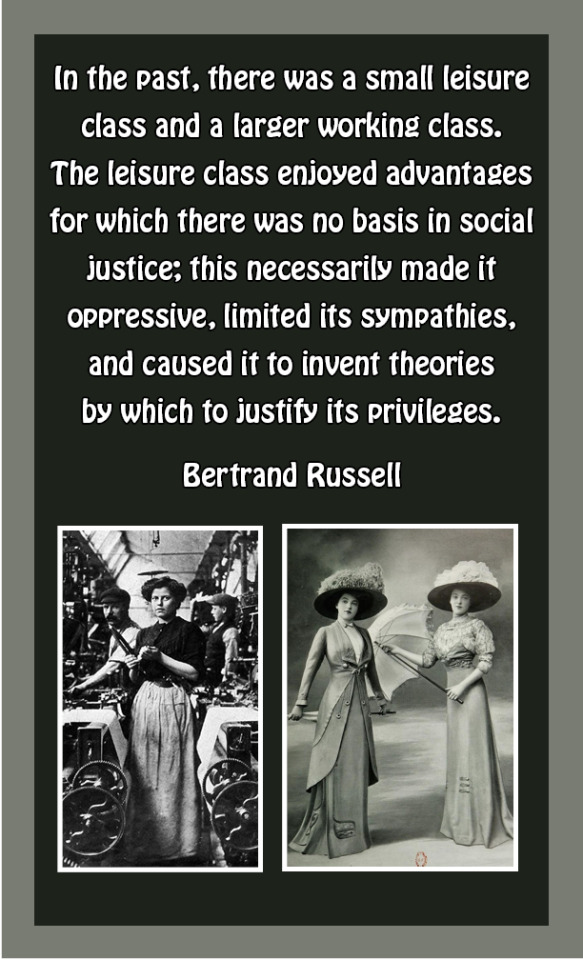
0 notes
Text




The headscarf + sunglasses combo remains an iconic look ✨
#the garden of bae#♡ bae the insider#black femininity#black girls in luxury#black women in luxury#black women in leisure#black girl luxury#high class#personal style
830 notes
·
View notes
Text
A Guide To Effortless Beauty
Makeup
It's been said that the "full beat" makeup trend of the late 2010s is no longer in style, and I agree. The makeup cycle has gone from #fullglam to #cleangirl in 5 years. Today we are talking about my favorite happy medium #soft glam.
Soft·Glam
/so͞ft'glam/
"effortless, diffused, and almost ethereal—basically, a more polished but natural you."
Ladies, if you want to stand out among the crowd or even just feel like the best version of yourself, a soft beat is a way to go!


Rules of Thumb
Keep your brows shaped and filled in.
Practice makeup application daily until you find your happy medium with products. (I personally utilize concealer and setting powder for a no-makeup makeup-baked look)
Wear moderate lashes ( Soft glam usually looks best with lash extensions or moderately length mink lashes)
Utilize a brown lip line with your shade of nude lipstick and gloss to give that extra pop of effortless glam.
Eyeliner, eyeshadow, and blush are optional.




Skin Care
Skincare is the foundation of all things beauty. A daily skincare routine is essential to minimize and maintain blemishes. Soft glam is about a fresh face with a pop of "I KNOW YOU SEE ME"!
Rules of Thumb
I recommend committing to a twice-daily skincare routine both morning and evening.
Make sure to wake up early enough to wash your face and apply all the necessary products before beginning makeup application.
Plan weekly deep cleanse for the face ( I like to plan my mask for the evening so they can be set without rushing).
I suggest buying skin care products as needed and try not to overstimulate your face.
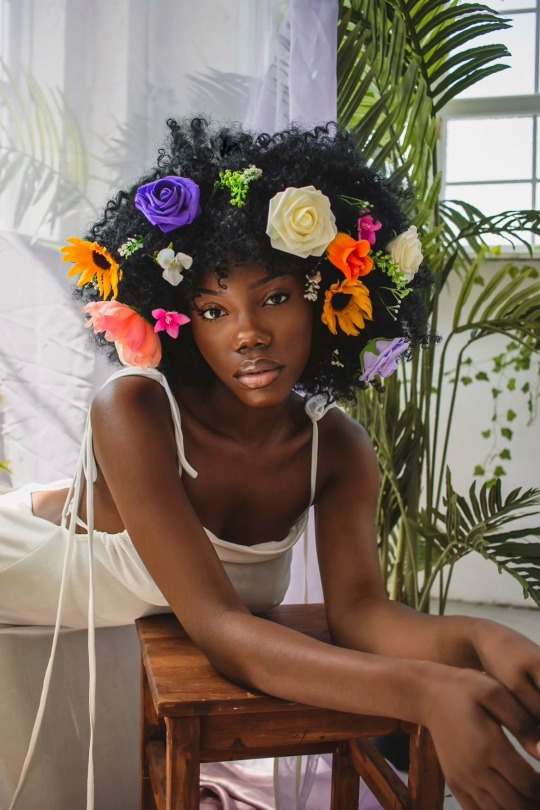
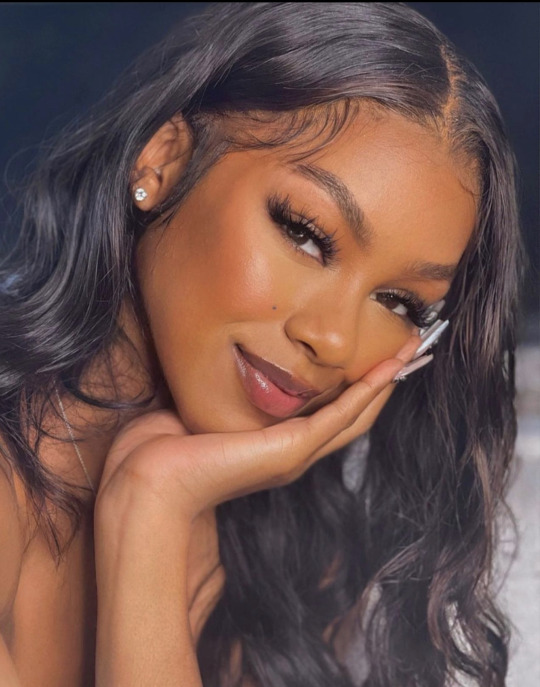
Hair
Hair can make or break a look. Imagine looking your best, but your hair is all over the place. It's an oxymoron. You should never shorthand your feminine routine by neglecting your hair. Whether you are a beginner or advanced, styling and maintaining your hair is always necessary when executing a soft glam look.
Rules of Thumb
Practice makes perfect; carve out time in your schedule to master simple styles such as curls and crimps.
Make sure your lace is always melted!
Natural hair beauties treat your hair with conditions and detangling as often as your hair type requires.
Create a mood board and set a goal to master each hairstyle.
Deep condition and silicone treat wigs in between each install.
Natural hair beauties master twist outs, edges and ponytails for a polished on-the-go look at all times.
`
Special thanks to @graceandopulence for the skin care collage.
#black femininity#black glamour#classy black women#black girl aesthetic#black girl in luxury#high value woman#soft black girls#soft black women#soft life#soft black woman#black girl moodboard#black women in leisure#black women class#black girl self esteem#black girl self care#black woman beauty#black women in femininity#black girl luxury#blackgirlmagic
555 notes
·
View notes
Text
tommy loves horses of course, and there's a lot going on there (re trauma), but he has a pretty utilitarian view on them most of the time; it's not as much of an affectionate relationship to the animals as i think fandom seems to believe. there's also rather a greater symbolic meaning in general to him than bonding himself emotionally to a single horse, the way it tends to be with most horsey narratives
#he *uses* them and i think it has something to do with his self image and - as i said - trauma#horses as vehicles as tools in war race horses etc etc#dunno where i'm going with this; i think there's some opportunity to do something w that in the movie#he surely was different here before the war and you can clearly imagine little tommy spending all the time at the stables#and talking more to the horses than to any of the people around or in general but yeah#his overidentification with something that he tends to objectify & then again not all his horse comparsions or metaphors are positive or#positively connotated either#& it's also a class thing even as there's an affectionate layer to this he wouldn't look at a horse and see a cherished coddled pet#they are animals bred for use and not leisure and that's the sentiment he grew up with as well
16 notes
·
View notes
Text


🕊🩰✨💚
#balletcore#ballet#ballet aesthetic#ballet core#coquette#ballerina#ballerina aesthetic#ballet photography#girlblogging#ballet folklorico#ballet costumes#ballet dancer#amateur ballerina#amatuer dancer#plus size feminity#plus size ballerina#plus size dancer#ballet class#black ballet#black femininity#black women in ballet#black dancers#black women in femininity#black women in leisure#black women in dance#soft black women#black woman femininity#afro ballet#ballet blog#ballet inspo
17 notes
·
View notes
Text
'TradWives are part of the leisure class" from Professor Neil
#TradWives are part of the leisure class#Professor Neil#professorneil#Tradwife#Tradfem#Homemaker#Homemaking#Housewife#Ye True Olden Days
9 notes
·
View notes
Text
okay but actually sometimes when you are tired you gotta take a nap and also eat some noodles and maybe also eat a cookie or two or three and then also read a bit of a book and then you’ll feel ready to be a human being again
#caroline talks#this post was brought to you by the fact I was literally unable to do anything as soon as I got home#and I was like ‘why am I crashing!’#and then I realized: lol I went to the gym and then I worked on a paper and then I had a meeting with a professor#and then I did homework and then I commuted to class and then I studied and then I had another meeting#and then I commuted back home so I literally have not had. a real break since 9 am#so I literally. took a shower. read some of a book.#took a nap. ordered takeout bc it was really a takeout kind of day and I had a gift card so—#and then ate dinner whilst finishing a show#ate cookies. and now I feel okay.#AND IT’S LIKE. WOW. AMAZING WHAT SOME LEISURE CAN DO TO A BRAIN
16 notes
·
View notes
Text

Friendship is something to be built up carefully, by people with leisure, it is an art, nature does not enter into it.
Nancy Mitford, The Pursuit of Love
#mitford#nancy mitford#quote#literature#author#writer#english class system#upper class#aristocracy#nobility#friendship#art of friendship#women#leisure#culture
37 notes
·
View notes
Text
By: Rob Henderson
Published: Nov 16, 2019
I was bewildered when I encountered a new social class at Yale four years ago: the luxury belief class. My confusion wasn’t surprising given my unusual background. When I was two years old, my mother was addicted to drugs and my father abandoned us. I grew up in multiple foster homes, was then adopted into a series of broken homes, and then experienced a series of family tragedies. Later, after a few years in the military, I went to Yale on the GI Bill. On campus, I realized that luxury beliefs have become fashionable status symbols. Luxury beliefs are ideas and opinions that confer status on the rich at very little cost, while taking a toll on the lower class.
In the past, people displayed their membership of the upper class with their material accoutrements. But today, luxury goods are more affordable than before. And people are less likely to receive validation for the material items they display. This is a problem for the affluent, who still want to broadcast their high social position. But they have come up with a clever solution. The affluent have decoupled social status from goods, and re-attached it to beliefs.
Human beings become more preoccupied with social status once our physical needs are met. In fact, research reveals that sociometric status (respect and admiration from peers) is more important for well-being than socioeconomic status. Furthermore, studies have shown that negative social judgment is associated with a spike in cortisol (hormone linked to stress) that is three times higher than non-social stressful situations. We feel pressure to build and maintain social status, and fear losing it.
It seems reasonable to think that the downtrodden might be most interested in obtaining status and money. But this is not the case. Inhabitants of prestigious institutions are even more interested than others in prestige and wealth. For many of them, that drive is how they reached their lofty positions in the first place. Fueling this interest, they’re surrounded by people just like them—their peers and competitors are also intelligent status-seekers. They persistently look for new ways to move upward and avoid moving downward. The French sociologist Émile Durkheim understood this when he wrote, “The more one has, the more one wants, since satisfactions received only stimulate instead of filling needs.” And indeed, a recent piece of research supports this: it is the upper class who are the most preoccupied with gaining wealth and status. In their paper, the researchers conclude, “relative to lower-class individuals, upper-class individuals have a greater desire for wealth and status…it is those who have more to start with (i.e., upper-class individuals) who also strive to acquire more wealth and status.” Plainly, high-status people desire status more than anyone else.
Furthermore, other research has found that absolute income does not have much effect on general life satisfaction. An increase in relative income, on the other hand, has a positive effect. Put differently, making more money isn’t important. What’s important is making more than others. As the researchers put it:
Increasing an individual’s income will increase his or her utility only if ranked position also increases and will necessarily reduce the utility of others who will lose rank…[which] may explain why increasing the incomes of all may not raise the happiness of all, even though wealth and happiness are correlated within a society at a given point in time.
Baby Millionaires
You might think that, for example, rich kids at elite universities would be happy because their parents are in the top one per cent of income earners. And they will soon join their parents in this elite guild. But remember, they’re surrounded by other members of the one per cent. Their social circle, their Dunbar number, consists of 150 baby millionaires. Jordan Peterson has discussed this phenomenon. Citing figures from his experience teaching at Harvard in the 1990s, Peterson noted that a substantial proportion of Ivy League graduates go on to obtain a net worth of a million dollars or more by age 40. And yet, he observes, this isn’t enough for them. Not only do top university graduates want to be millionaires-in-the-making; they also want the image of moral righteousness. Peterson underlines that elite graduates desire high status not only financially, but morally as well. For these affluent social strivers, luxury beliefs offer them a new way to gain status.
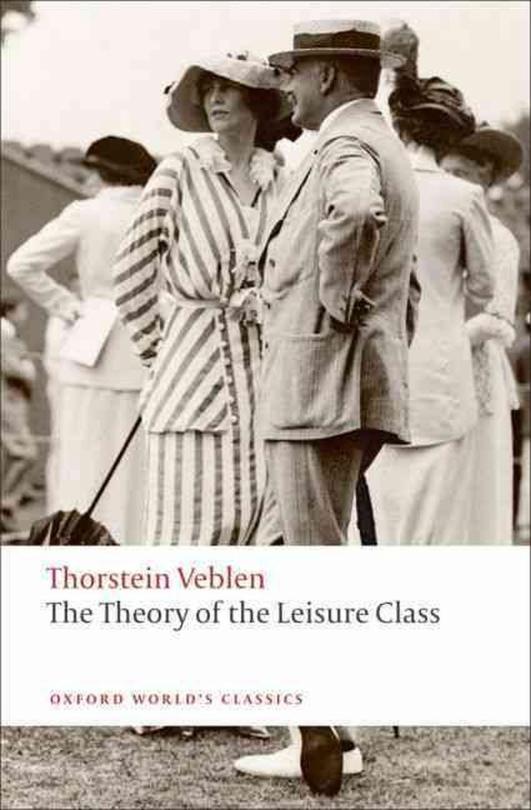
Thorstein Veblen’s famous “leisure class” has evolved into the “luxury belief class.” Veblen, an economist and sociologist, made his observations about social class in the late nineteenth century. He compiled his observations in his classic work, The Theory of the Leisure Class. A key idea is that because we can’t be certain of the financial standing of other people, a good way to size up their means is to see whether they can afford to waste money on goods and leisure. This explains why status symbols are so often difficult to obtain and costly to purchase. These include goods such as delicate and restrictive clothing like tuxedos and evening gowns, or expensive and time-consuming hobbies like golf or beagling. Such goods and leisurely activities could only be purchased or performed by those who did not live the life of a manual laborer and could spend time learning something with no practical utility. Veblen even goes so far as to say, “The chief use of servants is the evidence they afford of the master’s ability to pay.” For Veblen, Butlers are status symbols, too.
Building on these sociological observations, the biologist Amotz Zahavi proposed that animals evolve certain displays because they are so costly. The most famous example is the peacock’s tail. Only a healthy bird is capable of growing such plumage while managing to evade predators. This idea might extend to humans, too. More recently, the anthropologist and historian Jared Diamond has suggested that one reason humans engage in displays such as drinking, smoking, drug use, and other physically costly behaviors is because they serve as fitness indicators. The message is: “I’m so healthy that I can afford to poison my body and continue to function.” Get hammered while playing a round of golf with your butler, and you will be the highest status person around.
Conspicuous Convictions
Veblen proposed that the wealthy flaunt these symbols not because they are useful, but because they are so pricey or wasteful that only the wealthy can afford them, which is why they’re high-status indicators. And this still goes on. A couple of winters ago it was common to see students at Yale and Harvard wearing Canada Goose jackets. Is it necessary to spend $900 to stay warm in New England? No. But kids weren’t spending their parents’ money just for the warmth. They were spending the equivalent of the typical American’s weekly income ($865) for the logo. Likewise, are students spending $250,000 at prestigious universities for the education? Maybe. But they are also spending it for the logo.
This is not to say that elite colleges don’t educate their students, or that Canada Goose jackets don’t keep their wearers warm. But top universities are also crucial for induction into the luxury belief class. Take vocabulary. Your typical middle-class American could not tell you what “heteronormative” or “cisgender” means. But if you visit Harvard, you’ll find plenty of rich 19-year-olds who will eagerly explain them to you. When someone uses the phrase “cultural appropriation,” what they are really saying is “I was educated at a top college.” Consider the Veblen quote, “Refined tastes, manners, habits of life are a useful evidence of gentility, because good breeding requires time, application and expense, and can therefore not be compassed by those whose time and energy are taken up with work.” Only the affluent can afford to learn strange vocabulary because ordinary people have real problems to worry about.
The chief purpose of luxury beliefs is to indicate evidence of the believer’s social class and education. Only academics educated at elite institutions could have conjured up a coherent and reasonable-sounding argument for why parents should not be allowed to raise their kids, and should hold baby lotteries instead. When an affluent person advocates for drug legalization, or anti-vaccination policies, or open borders, or loose sexual norms, or uses the term “white privilege,” they are engaging in a status display. They are trying to tell you, “I am a member of the upper class.”
Affluent people promote open borders or the decriminalization of drugs because it advances their social standing, not least because they know that the adoption of those policies will cost them less than others. The logic is akin to conspicuous consumption—if you’re a student who has a large subsidy from your parents and I do not, you can afford to waste $900 and I can’t, so wearing a Canada Goose jacket is a good way of advertising your superior wealth and status. Proposing policies that will cost you as a member of the upper class less than they would cost me serve the same function. Advocating for open borders and drug experimentation are good ways of advertising your membership of the elite because, thanks to your wealth and social connections, they will cost you less than me.
Unfortunately, the luxury beliefs of the upper class often trickle down and are adopted by people lower down the food chain, which means many of these beliefs end up causing social harm. Take polyamory. I had a revealing conversation recently with a student at an elite university. He said that when he sets his Tinder radius to five miles, about half of the women, mostly other students, said they were “polyamorous” in their bios. Then, when he extended the radius to 15 miles to include the rest of the city and its outskirts, about half of the women were single mothers. The costs created by the luxury beliefs of the former are borne by the latter. Polyamory is the latest expression of sexual freedom championed by the affluent. They are in a better position to manage the complications of novel relationship arrangements. And if these relationships don’t work out, they can recover thanks to their financial capability and social capital. The less fortunate suffer by adopting the beliefs of the upper class.
This is well-illustrated by the finding that in 1960 the percentage of American children living with both biological parents was identical for affluent and working-class families—95 percent. By 2005, 85 percent of affluent families were still intact, but for working-class families the figure had plummeted to 30 percent.
Children living with both biological parents
Affluent families in 1960: 95%
Working class families in 1960: 95%
Affluent families in 2005: 85%
Working class families in 2005: 30%
https://www.goodreads.com/book/show/12031563-coming-apart
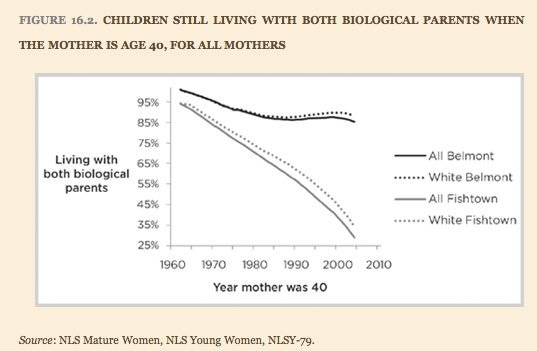
— Rob Henderson (@robkhenderson) September 29, 2019
The Harvard political scientist Robert Putnam at a Senate hearing said, “Rich kids and poor kids now grow up in separate Americas…Growing up with two parents is now unusual in the working class, while two-parent families are normal and becoming more common among the upper middle class.” Upper-class people, particularly in the 1960s, championed sexual freedom. Loose sexual norms spread throughout the rest of society. The upper class, though, still have intact families. They experiment in college and then settle down later. The families of the lower class fell apart. Today, the affluent are among the most likely to display the luxury belief that sexual freedom is great, though they are the most likely to get married and least likely to get divorced.
The Rabble and the Rich
This aspect of luxury beliefs is worrisome. As I noted in my original luxury beliefs essay, material goods have become more affordable and, thus, less reliable indicators of social class. Status has shifted to the beliefs we express. And beliefs are less expensive than goods because anyone can adopt them. They are not financially costly. And according to Veblen, along with other social observers like Paul Fussell, ordinary people try to emulate the upper classes. The elite want to differentiate themselves from the rabble with their visible badges of luxury. But then then the class below tries to emulate the elite, and the stratum below that as well, until the style has trickled down to the rest of society. And because luxury beliefs don’t have any financial costs, the ‘fashion’ in beliefs trickles down more quickly.
Over time, luxury beliefs are embraced down the social ladder—at which point, the upper class abandons its old luxury beliefs and embraces new ones. Which explains why the beliefs of the upper class are constantly changing. It’s easy to see how this works if we look at actual fashion. The author Quentin Bell, in On Human Finery, wrote “Try to look like the people above you; if you’re at the top, try to look different from the people below you.” The elite’s conspicuous display of their luxury beliefs falls into this pattern. Their beliefs are emulated by others, sending them off in search of new beliefs to display. The affluent can’t risk looking like hoi polloi, after all.
Or consider art. The psychologist Steven Pinker in How the Mind Works writes, “In an age when any Joe can buy CDs, paintings, and novels, artists make their careers by finding ways to avoid the hackneyed, to challenge jaded tastes, to differentiate the cognoscenti from the dilettantes.” Artists want to differentiate themselves from what’s been done before and what others are currently doing. And so do the affluent. Moral fashions change over time for the same reason. Moral fashions can quickly spiral as more and more members of the chattering classes adopt a certain view. Once the view becomes passé, the upper class, aiming to separate themselves, then update their moral inventories. Veblen still reigns supreme, but in a different way.
As he puts it, “What is common is within the (pecuniary) reach of many people…Hence the consumption, or even the sight of such goods, is inseparable from an odious suggestion of the lower levels of human life.” The affluent do not want to be seen with “common” goods. They view them as distasteful. Today, it’s not just common goods they view as distasteful—it’s beliefs too. The affluent, dreading an “odious” designation, resist displaying commonplace beliefs. Those beliefs are for the little people. Instead, the upper class want to be seen displaying luxury beliefs.
Modern neuroscience did not exist in the nineteenth century. But Veblen might have been amused to learn that the same regions of the brain involved in rewards such as eating chocolate or winning money also activate when we receive compliments from strangers or learn that people we will never meet find us attractive. Veblen wrote, “Immaterial evidences of past leisure are quasi-scholarly or quasi-artistic accomplishments and a knowledge of processes and incidents which do not conduce directly to the furtherance of human life.” In his day, the leisure class spent a lot of time accruing useless knowledge and partaking in activities that have the appearance of intellect and artistry, but had no functional utility. These activities didn’t help anyone, but they did make their enthusiasts look good. What might Veblen have made of Twitter, given these observations?
Status Spirals
The economist and social theorist Thomas Sowell once said that activism is “a way for useless people to feel important, even if the consequences of their activism are counterproductive for those they claim to be helping and damaging to the fabric of society as a whole.” The same could be said for luxury beliefs. They are similar to luxury goods, but present new problems. Attaching status to luxury goods or financial standing meant there were limits to how much harm the leisure class could do when it came to their conspicuous displays. For example, fashion is constrained by the speed with which people could adopt a new look. But with beliefs, this status cycle accelerates. A rich person flaunts her new belief. It then becomes fashionable among her peers, so she abandons it. Then a new stylish belief arises, while the old luxury belief trickles down the social hierarchy and wreaks havoc.
[ Via: https://archive.is/JBD4Y ]
==
The people who want to lecture you about your "privilege" are the most privileged of all.
#Rob Henderson#luxury beliefs#Thorstein Veblen#leisure class#ruling class#status seeking#status symbol#virtue signal#virtue signaling#virtue signalling#religion is a mental illness
12 notes
·
View notes
Text
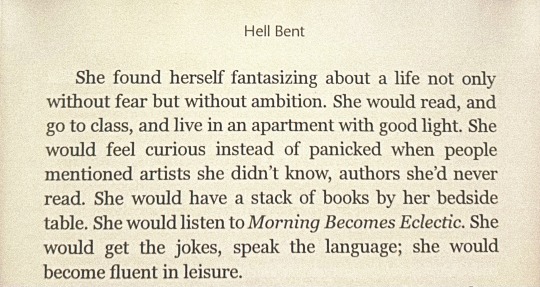
#hell bent#galaxy stern#alex stern#leigh bargudo#ninth house#runadreams#working class#life of leisure#bookblr#book quote#life quote#books#leisure#📚
50 notes
·
View notes
Text
I had a realization last night while playing Satisfactory. I've been tricked into enjoying the very thing I studied in school. Good god, how did it come to this?
Anyway I just finished automating my heavy modular frame factory and I really like how it turned out. Been thinking about how to scale it up into a pseudo-bus for other projects or maybe just save it to ramp up frame production later.
#satisfactory#process design was always one of my least favorite classes#yet here i am enjoying it in my leisure#gotta break out my TI-84 soon
19 notes
·
View notes
Text




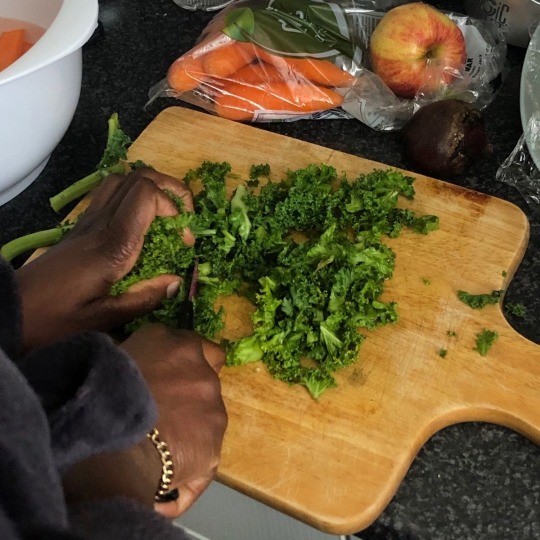




Visual representation of how I spent the first Sunday in my new home 🤩🏡🥂
#the garden of bae#the Sunday edit#black femininity#black girls in luxury#black women in leisure#black women in luxury#high class#daughter of God#discipleship
316 notes
·
View notes
Text
Underrated Travel Hacking Tips for Everyone

I haven’t taken a vacation for the last three years with good reason regarding the severity of the global health crisis and the economy of the US. Inflation is at an all-time high and the cost of everything from groceries to clothing increased.
On one of my work lunch breaks, I stumbled upon a YouTube video from professional, full time travel vloggers who enjoy saving money. I saw that the Youtuber went on a “travel hacking” trip around the world to save up miles and points for two weeks. I personally would not like to spend only a day in different countries while spending so much money to fly there. Also, I don’t want to pay the annual fees for travel credit cards. Therefore, I decided to do my own research to see which tips could work for any frugal traveler.
· Link your accounts: Delta SkyMiles and Instacart have a partnership. Everyone needs groceries. I order from Costco every week to support my family and we buy the necessities (milk, meat, fruits, and vegetables) only to cut costs. Every one dollar spent on Instacart is one and a half miles on Delta. It racks up quickly.
· Bonus Tip: Instacart has a great deal when an order is placed within a three-hour window, the customer receives two dollars off their order. More money in your wallet!
· Best Credit Card: Amazon Prime Rewards Visa is the most economical credit card that has no annual fee. I invested in an Amazon Prime membership in 2016 and never looked back. It is the only streaming service that I pay for. Majority of my purchases are from Amazon and I received five percent back with each order. It is two percent back on restaurants, gas, and drugstores. There is one percent back on all other purchases. The points can be used to buy anything that Amazon has on their website.
· SkyMiles Shopping: Airlines like Delta have their own designated website where a customer can earn airline miles with their purchases. Every company listed on the website has a specific number of miles that a customer can earn. I love fitness and I buy my workout clothes from the website. During the holiday season, I was able to earn three miles per every one dollar spent for a Delta flight by buying two tie dye sweatshirts.
With the information that I learned and stated above, I booked my flight to Hilo, Hawaii and I posted some photographs that I took below. It was heavenly paradise.

The magical sunset that I experienced from the summit at my hotel.

It was so beautiful to see the aerial view of Hawaii from a helicopter and the scent of sea water was relaxing.
Sources:
https://news.delta.com/turning-groceries-getaways-delta-teams-instacart-reward-skymiles-members-everyday-purchases
https://www.skymilesshopping.com/
https://www.amazon.com/gp/cobrandcard/marketing.html?&plattr=ChaseMS
https://www.youtube.com/watch?v=U1pk2FJBhcg
https://www.youtube.com/watch?v=8CPQE7Hdebc
#ncis#ncis hawaii#travel#travel hacking#budget travel#instacart#shopping#delta#airline#kara and nate#travel and leisure#resume#freelance#tips#paradise#hilo#first class#away#luggage#vanessa lachey#oahu#kona#chocolate#cbs news#under armour#tie dye#paris hilton#superbowl sunday#pink#barbie
59 notes
·
View notes
Text
instagram:_barrewithme_
#balletcore#ballet#ballet aesthetic#ballet core#coquette#ballerina#ballerina aesthetic#girlblogging#ballet photography#black ballet#black ballerinas#black dancers#black femininity#black women in femininity#black women in leisure#black women in luxury#ballet folklorico#ballet performance#ballet dancer#ballet class#adult ballet#ballet blog#ballet barre#ballet chic#ballet fashion#ballet girl#ballet inspo#ballet life#ballet music#ballet outfit
4 notes
·
View notes
Text
The Girls are mad!
And they can stay mad. If something doesn't sit well with me, not only am I going to say something, I am not going to subject myself to it.
Yes, its story time:
So a few months ago, I had went out with a group of people, both men and women, in downtown Bellevue. When I got the invite, I initially said I was going to drive myself - but oh no, they insisted that I ride with them, bad idea. Mind you, we were suppose to go bowling. When we got to the bowling alley, there was no reservation. We're in our mid-twenties, why are you not making reservations for when we go out?! We arrived at the bowling alley around 8pm and they said it was a two hour wait. I put my name and number down for them to call us when they're ready as we went to a restaurant nearby. The restaurant was cute, it was a little packed - but this is where the night became disastrous.
I love fine dining and I was raised well, so etiquette and class are my bread and butter.
"Hi how are you, a table for eight please?"
We sit, and while we're all looking at the menu the waiter informs us that any party greater than six will have only one check; We all said yes and agreed to the stipulations of the restaurant.
Or at least I thought so. Maybe they didn't hear because half of them showed up inebriated.
I'm already annoyed from the non-existent reservation for the bowling alley and my level of regret keeps growing by the minute.
For someone like myself who frequents high-class establishments on the regular, I know that if there is an experienced chef in the kitchen, as long as you can describe something (even if it's not on the menu), they'll make it. I ordered bread for the table and asked for a garlic butter vinaigrette (for the girls that get it) for myself. As I am ordering, one of the guys yells and says "Sarah can order for us because she knows how to talk like them" - WHAT!!!!!! The level of mortification.
Is "mortification" even a thing?
I was MORTIFIED!
I also know when people see something they haven't had before, they tend to want to taste it. So when the bread came out, I did not double dip into my garlic butter vinaigrette. One of the girls asked if she could taste it and I allowed her to. But then she double-dipped, into MY garlic butter vinaigrette.
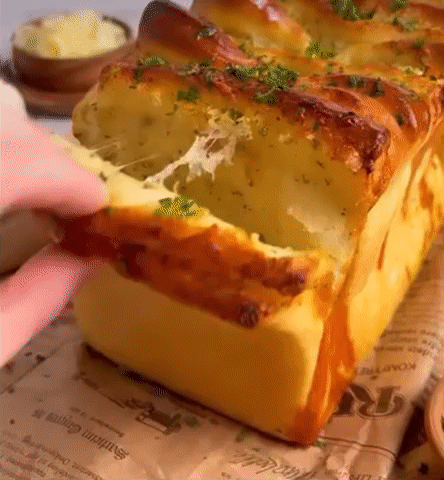
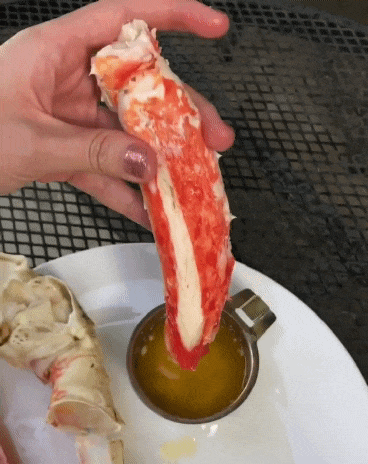
I ordered another one. I am not the type to make a scene in public. She finished my original one and called the waiter over "Waiter, can I get that butter stuff too?" - loud as all hell. She didn't even get the proper name of it so he brought her a stick of butter and she was upset; Bombastic side eye *with Caribbean accent.

Besides the utter loudness and vulgarity of the night - the icing on this pineapple upside-down cake was when the check came and they saw the price that everyone would have to pay (only like $60 each by the way):
"I only had water"
"I didn't order that much food"
"My drink wasn't even expensive"
"I need to speak to the manager"
M O R T I F I E D
I asked myself why did I allow myself to be out with people that I know don't know how to conduct themselves in public. And what's worse is Washington is a predominantly white state and that night we were the only Black people in the restaurant. Now whatever misconception they may have had about Black people or people of color in general, they solidified and reinforced every negative stereotype.
Since that night, I had never been out with the group ever again.
I almost had a rocky night like that again this weekend but I cancelled because I knew it was going to be a mess.
Pretty much one of the girls mentioned how we never hang out - and I don't. She mentioned this place in Seattle called MBar. Any place in the city that you want to go to needs a reservation made. She said she called and couldn't reserve a spot, interesting.

Ms. Princess Chanel called, and what do you know they answer and say that there is an opening Friday night at 6:30. I proceed with the reservation and they ask to put my card on file, you know, in the event I don't show up they can charge me - which is normal for nicer and more exclusive restaurants. I believe she didn't make the reservation because she did not want to put her card on file. It's giving I wanna be a "pseudo-pretty girl": someone who wants to act like this lifestyle is normal to them but it's not because anyone who knows anything knows that normal.
I let them know that the reservation has been made but then one of the girls was like they are unsure if they can make it - you should have said that before I made the reservation. Then it turned into a "can I ride with you" and "who is coming to pick me up" - excuse my French but who the freak did you think was going to be the designated driver to two drunk bozos who don't even know how to conduct themselves as ladies - absolutely the freak not.
I CANCELLED THE RESERVATION.
They can go out by themselves and that is exactly what I said.
They ended up at a local bar - which is fine if that's what you're into. But don't try to frequent the places that I go to bringing that bottom of the barrel behavior with you; People know me, I stop and say hello.
So the mad girls can stay mad and I will go out by my lonesome, with my African King or my girls back home - you know, the girls that get it.
And that's who this blog is for: the girls who get it, even though I know the girls that don't get it watch and read too. Maybe they might learn a few things.
But as always, with love from your soon to be Mrs. Haitian-African,
Sarah Chanel
xoxo
P.S.
I went to brunch with an adult the next morning at a restaurant where we made a reservation:

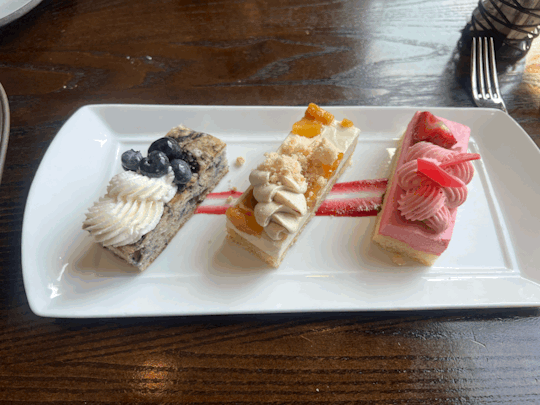



#black women#black women in luxury#luxuriousbw#black women fashion#black women in leisure#black femininity#luxury#blackwomen#class#etiquette#pretty girls#fine dining
10 notes
·
View notes